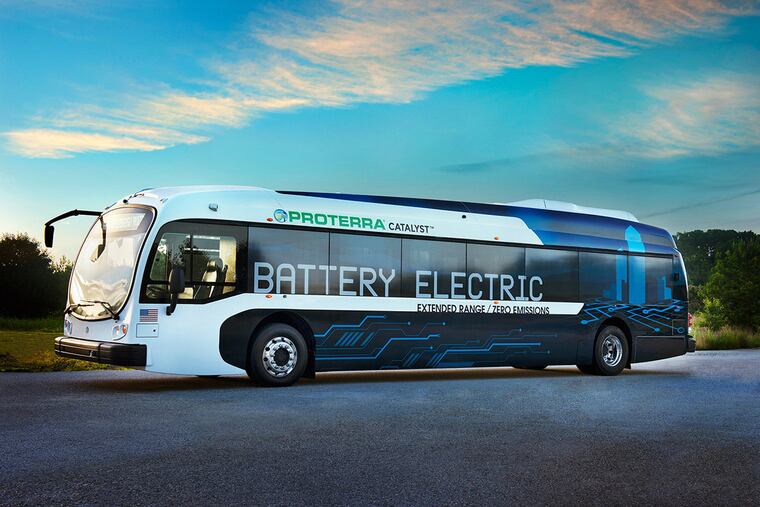SEPTA to add 25 electric buses next year
A grant of nearly $2.6 million will bring emissions-free electric buses to Philadelphia streets. "We looked at the economics, and we looked at the impact on the environment, and we thought on both fronts this was a good decision for the authority," said Rich Burnfield, SEPTA's deputy general manager.

A grant of nearly $2.6 million will bring emissions-free electric buses to Philadelphia streets.
"We looked at the economics, and we looked at the impact on the environment, and we thought on both fronts this was a good decision for the authority," said Rich Burnfield, SEPTA's deputy general manager.
The Federal Transportation Administration grant, announced Tuesday, will help pay for 25 electric buses from Proterra, a California-based manufacturer. Matt Horton, one of the company's senior vice presidents, said SEPTA's order was one of the largest from a major transit agency.
The new 40-foot buses should hold up to 77 passengers and will travel Routes 29 and 79 in South Philadelphia, chosen because they are flat and short, good testing ground for a pilot program. The grant money will also help pay for two charging stations. The buses will likely be launched next spring, Horton said. The agency has yet to decide where the charging stations will be located, officials said.
SEPTA is modernizing its fleet by buying 525 buses this year, and the grant will help pay for the $100,000-a-bus difference between SEPTA's standard hybrid and the electric vehicles, Burnfield said.
A 2015 Delaware Valley Regional Planning Commission report found electric buses are cheaper than installing the infrastructure needed to run trolley buses, which used to service the 29 and 79 routes. Because of the volatility of fuel prices, the report also found electric buses could be cheaper in the long run than hybrids.
"This is taking a step toward a future of cleaner, more livable cities," said Luke Tonachel, director of clean vehicles and fuels at the Natural Resources Defense Council. Public transportation contributes to about 30 percent of carbon emissions in East Coast cities, he said.
Philadelphia's ozone levels do not meet federal standards, said Christina Simeone, of University of Pennsylvania's Kleinman Center for Energy Policy. Street-level diesel emissions, even those from hybrid buses, contribute to asthma and other respiratory problems, she said.
"In 2004 less than 1 percent of all buses were electric or hybrid," she said. "In 2014 that's been bumped up to almost 18 percent."
215-854-4587
@jasmlaughlin